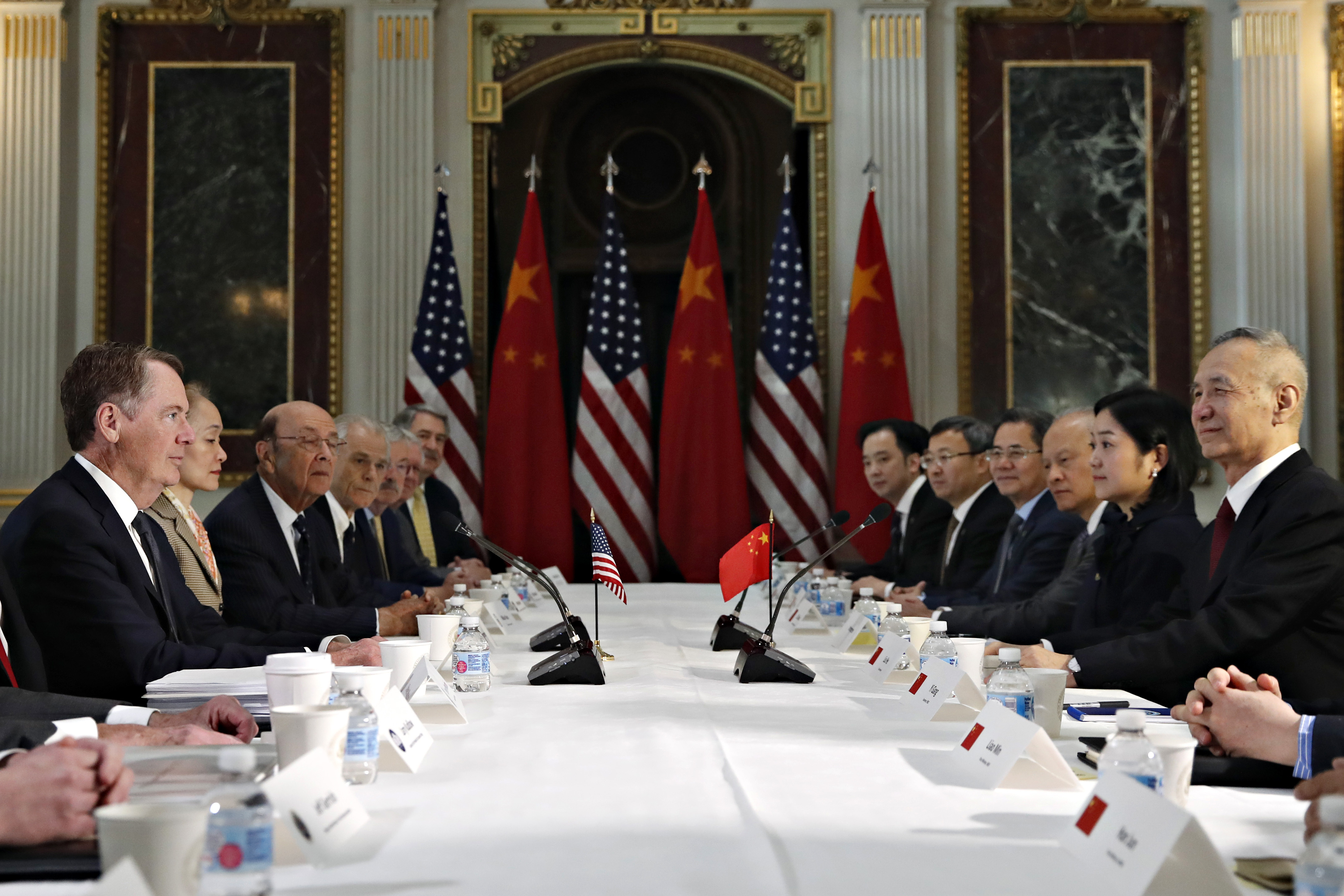
A meeting of senior U.S. and Chinese officials to resume trade negotiations, Thursday, Feb. 21, 2019. Credit: AP Photo/Jacquelyn Martin
*This post was originally published on March 1st, 2019, and was updated on August 23rd 2019.
In a modern-day Mexican standoff, the U.S. and China are confronting each other over trade practices. The United States believes China has been luring away jobs and stealing American technology, and has slapped tariffs on Chinese goods, while the Chinese government has responded in kind. But beyond the trade issue, there's the issue that China might be out-innovating the U.S. George Yip, a professor of marketing and strategy at Imperial College Business School in London thinks that the Chinese are no longer mere imitators but have become serious innovators in their own right.
Ian Bremmer, president of Eurasia Group and GZERO Media, believes that the U.S. government has some valid complaints, but that China is nonetheless becoming increasingly competitive in the innovation game.
Yip and Bremmer discuss China’s increasing dominance on the global stage, and consider what’s at stake for the U.S.
Three Takeaways:
- Trust between the two governments is at an all-time low, says Bremmer. He worries this trade dispute could escalate to a Cold War of sorts over innovation and technology. Currently, the U.S. and China cooperate on joint papers and scientific research, and there is a fear that this collaboration is being threatened in the trade dispute.
- Yip explained, “If the West is good at going from 0 to 1, China is good at going from 1 to 100.” China is strategically investing in technological innovations both at home and abroad. While Bremmer and Yip don’t believe the U.S.’s position as a superpower is diminishing, China is quickly rising to become a key player, in part because of its commitment to innovation.
- A “Chinese dream” instead of an American one? Bremmer believes the U.S. has long assumed that “we are the best,” but the Chinese have watched their country rapidly develop over the years. Increasingly, according to Yip, the Chinese government has been encouraging ethnic Chinese, who have been trained in the U.S., to come back home. Rhetoric on immigration from the Trump administration is not helping. Bremmer points to a decline in the enrollment of international STEM students in the U.S. According to a report by the National Science Foundation, the percentage of science and engineering graduate students from overseas fell by 6 percent from 2016 to 2017.
More Reading:
- Read about China’s evolution from a copycat nation to a high-tech superpower - all part of its journey from “Made in China” to “Designed in China.”
- Despite all the talk about China’s burgeoning economy, there are warning signs of a slowdown. China’s housing market seems to be slumping. So, is the country making some bad investments?
- What does Intellectual Property theft even look like? Listen to Planet Money’s episode, “It Takes Two To Make A Trade War Fight”, exploring a small, American company’s claims that China stole its invention.
- The Chinese Dream is real. Read The New York Time’s profile of Dong Mingzhu, a widow who rose from salesperson to president of her company, and became known as one of China’s toughest businesswomen.

